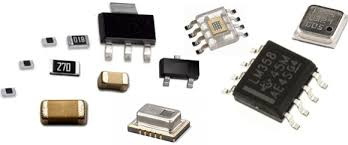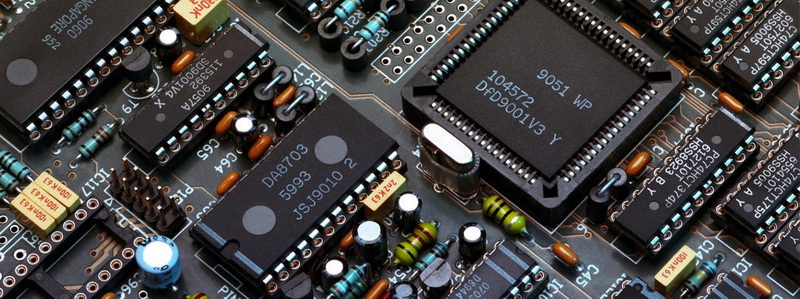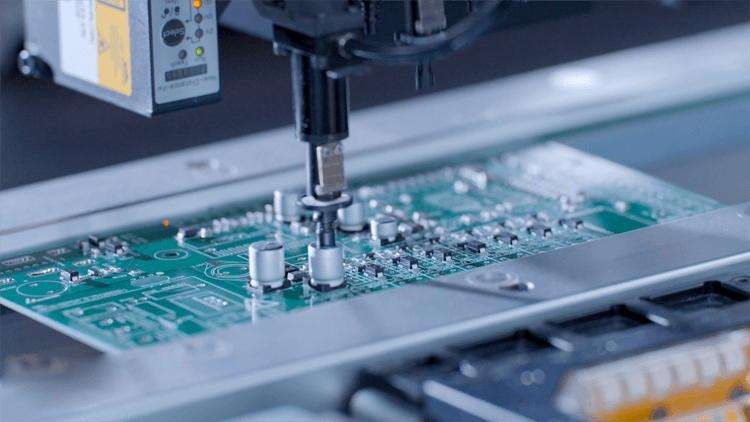Content Menu
● Understanding Surface Mount Technology
>> The Importance of SMT in Modern Electronics
● Skills Gained from Surface Mount Technology Training in India
>> Proficiency in SMT Equipment Operation
>> Understanding PCB Design and Layout
>> Soldering Techniques
>> Quality Control and Testing
>> Troubleshooting and Problem-Solving Skills
>> Knowledge of Industry Standards and Regulations
>> Teamwork and Communication Skills
>> Familiarity with Emerging Technologies
>> Project Management Skills
>> Career Advancement Opportunities
● Conclusion
● FAQ
>> 1. What is Surface Mount Technology (SMT)?
>> 2. What are the benefits of SMT training in India?
>> 3. How long does SMT training typically last?
>> 4. Are there any prerequisites for enrolling in SMT training?
>> 5. What career opportunities are available after completing SMT training?
Surface Mount Technology (SMT) has revolutionized the electronics manufacturing industry, enabling the production of smaller, more efficient devices. As technology continues to advance, the demand for skilled professionals in this field is on the rise. In India, various training programs are available that focus on SMT, equipping individuals with the necessary skills to thrive in this dynamic environment. This article explores the skills you can gain from surface mount technology training in India, the importance of these skills in the industry, and how they can enhance your career prospects.

Understanding Surface Mount Technology
Before delving into the skills acquired through training, it is essential to understand what surface mount technology entails. SMT is a method used to mount electronic components directly onto the surface of printed circuit boards (PCBs). This technique has several advantages over traditional through-hole mounting, including reduced size, improved performance, and lower production costs. As a result, SMT has become the preferred choice for manufacturers worldwide.
The Importance of SMT in Modern Electronics
The significance of SMT in the electronics industry cannot be overstated. With the increasing demand for compact and efficient electronic devices, manufacturers are turning to SMT to meet these requirements. This shift has created a need for trained professionals who can operate SMT equipment, understand the intricacies of the technology, and ensure high-quality production standards.
Skills Gained from Surface Mount Technology Training in India
Proficiency in SMT Equipment Operation
One of the primary skills you will gain from surface mount technology training in India is proficiency in operating SMT equipment. This includes understanding how to use pick-and-place machines, soldering machines, and reflow ovens. Training programs often provide hands-on experience, allowing you to become familiar with the machinery and its functions. Mastering these skills is crucial, as the efficiency and quality of the manufacturing process depend heavily on the proper operation of these machines.
Understanding PCB Design and Layout
A solid understanding of PCB design and layout is another critical skill acquired through SMT training. You will learn how to read and interpret schematic diagrams, which is essential for understanding how components fit together on a PCB. Additionally, training will cover the principles of designing PCBs for SMT, including considerations for component placement, trace routing, and thermal management. This knowledge is vital for ensuring that the final product meets performance and reliability standards.
Soldering Techniques
Soldering is a fundamental skill in electronics manufacturing, and SMT training will teach you various soldering techniques specific to surface mount components. You will learn about different types of solder, soldering methods, and the importance of temperature control during the soldering process. Mastering these techniques is essential for ensuring strong electrical connections and preventing defects in the final product.
Quality Control and Testing
Quality control is a critical aspect of electronics manufacturing, and surface mount technology training will equip you with the skills needed to perform quality checks and testing. You will learn about various testing methods, including visual inspection, automated optical inspection (AOI), and functional testing. Understanding how to identify defects and ensure that products meet quality standards is essential for maintaining the reputation of a manufacturing company.
Troubleshooting and Problem-Solving Skills
In any manufacturing environment, issues can arise that require quick and effective solutions. SMT training will help you develop troubleshooting and problem-solving skills, enabling you to identify and resolve issues related to equipment malfunctions, production delays, and quality defects. These skills are invaluable in maintaining production efficiency and minimizing downtime.

Knowledge of Industry Standards and Regulations
The electronics manufacturing industry is governed by various standards and regulations to ensure safety and quality. Through surface mount technology training in India, you will gain knowledge of these standards, including IPC standards for PCB manufacturing and assembly. Understanding these regulations is crucial for ensuring compliance and maintaining high-quality production practices.
Teamwork and Communication Skills
Working in electronics manufacturing often involves collaboration with various teams, including design, production, and quality assurance. SMT training programs emphasize the importance of teamwork and effective communication. You will learn how to work collaboratively with others, share information, and contribute to a positive work environment. These soft skills are essential for career advancement in the industry.
Familiarity with Emerging Technologies
The field of electronics is constantly evolving, with new technologies and methodologies emerging regularly. Surface mount technology training will expose you to the latest trends and innovations in the industry, such as the integration of automation and artificial intelligence in manufacturing processes. Staying updated on these advancements is crucial for remaining competitive in the job market.
Project Management Skills
Many SMT training programs include components of project management, teaching you how to plan, execute, and oversee projects effectively. You will learn about resource allocation, time management, and risk assessment, which are essential skills for anyone looking to advance into supervisory or managerial roles within the electronics manufacturing sector.
Career Advancement Opportunities
Finally, one of the most significant benefits of surface mount technology training in India is the potential for career advancement. With the skills and knowledge gained from training, you will be well-equipped to pursue various roles within the electronics industry, including SMT technician, quality control inspector, and production supervisor. The demand for skilled professionals in this field is high, and completing a training program can significantly enhance your employability.
Conclusion
Surface mount technology training in India offers a wealth of opportunities for individuals looking to build a career in the electronics manufacturing industry. The skills gained from such training are not only essential for operating SMT equipment and ensuring quality production but also for advancing in your career. As the industry continues to grow and evolve, the need for skilled professionals will only increase, making now the perfect time to invest in your education and training in surface mount technology.
By acquiring proficiency in SMT equipment operation, understanding PCB design, mastering soldering techniques, and developing quality control skills, you will position yourself as a valuable asset in the electronics sector. Whether you are just starting your career or looking to enhance your existing skills, surface mount technology training in India can provide you with the knowledge and experience needed to succeed.

FAQ
1. What is Surface Mount Technology (SMT)?
Surface Mount Technology (SMT) is a method used to mount electronic components directly onto the surface of printed circuit boards (PCBs). This technique allows for smaller, more efficient devices and is widely used in modern electronics manufacturing.
2. What are the benefits of SMT training in India?
SMT training in India provides individuals with hands-on experience in operating SMT equipment, understanding PCB design, mastering soldering techniques, and ensuring quality control. These skills enhance employability and career advancement opportunities in the electronics industry.
3. How long does SMT training typically last?
The duration of SMT training programs can vary, but most courses range from a few weeks to several months, depending on the depth of the curriculum and the level of hands-on training provided.
4. Are there any prerequisites for enrolling in SMT training?
While some training programs may require a basic understanding of electronics, many are designed for beginners. It is advisable to check the specific requirements of the training program you are interested in.
5. What career opportunities are available after completing SMT training?
After completing SMT training, individuals can pursue various roles in the electronics manufacturing industry, including SMT technician, quality control inspector, production supervisor, and more. The demand for skilled professionals in this field is high, offering numerous career advancement opportunities.




















